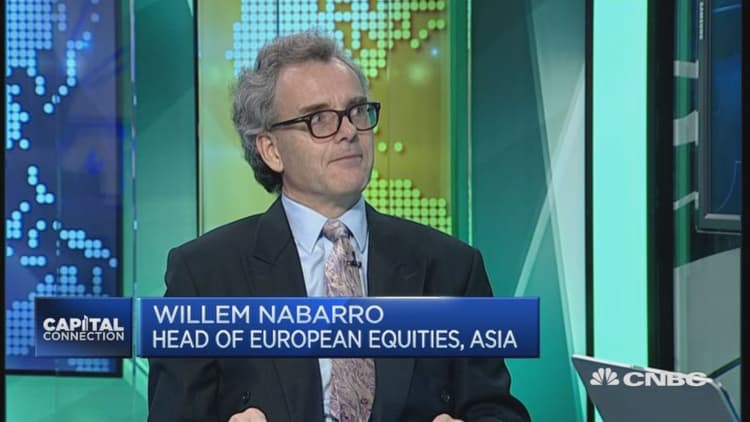


Forget the debate between the "leave" and "remain" camps: It's the timing of the 'Brexit' referendum that worries some Fed watchers.
British voters are set to decide on June 23 whether or not to leave the European Union, just one week after the Federal Reserve's June 14-15 policy meeting. Some economists say that for a Fed that has become increasingly attuned to global and financial developments, the uncertainty around the U.K. vote will force the Federal Open Market Committee to remain on hold.
"With the Brexit referendum just eight days [after] the meeting, the bar for the domestic data is pretty high," wrote Pantheon Macroeconomics' chief economist, Ian Shepherdson, in a note. "We think the decision will be closer than markets believe, but ultimately we think Dr. Yellen will prefer to wait until after the vote, and move in September."
Shepherdson said delaying a rate hike until September would grant the Fed more time to assess economic and financial implications from a possible Brexit. He added Fed officials would also have a clearer picture of the domestic U.S. economy in the fall.
"By then, we think the data will be unambiguous, and Fed officials can prepare the markets at Jackson Hole [Wyoming] in August," Shepherdson said.
Others suggested the Fed's July meeting, which has no scheduled news conference, might be a better alternative than June given the timing of the Brexit vote and the volatility it might create in financial markets.
"We reiterate our expectation that conditions will warrant another 25 basis point (bp) rate hike this summer," wrote economists at Bank of America Merrill Lynch. "June remains our base case. But if financial conditions tighten appreciably ahead of the U.K. referendum, the FOMC may tactically delay to July."
On Wednesday, the Fed removed concern over global risks from its statement, saying instead it would "closely monitor inflation indicators and global economic and financial developments." The change in language leaves open the possibility of a June rate hike, which would mark the committee's first move since it raised rates last December. Since then, the U.S. central bank has cited global economic and financial conditions as a key reason for delaying further hikes.
"The June meeting will be tricky given the looming Brexit referendum, but the committee could acknowledge that risks are nearly balanced with the caveat that it is still monitoring global/financial developments," wrote economists from Societe Generale.
Paul Ashworth, chief U.S. economist at Capital Economics, said the Fed's omission of the warning about global risks leaves the door open for a rate hike in June, regardless of the U.K. vote.
"It has been suggested that the U.K. referendum on whether to remain within the European Union could derail a June rate hike by the Fed, but we can't see that happening," Ashworth said. "Global financial markets clearly aren't too worried about the risk of the U.K. leaving so why should the Fed be?"
Many Fed officials have yet to weigh in on the possible contagion effects of a Brexit. Speaking on CNBC's "Squawk Box" in February, St. Louis Fed President James Bullard said a British departure from the European Union would not be a "risk event" for the U.S. economy.
"It doesn't really matter for the U.S. whether the U.K. is in or out," Bullard said.
Clarification: The Brexit referendum is eight days after the FOMC meeting.



